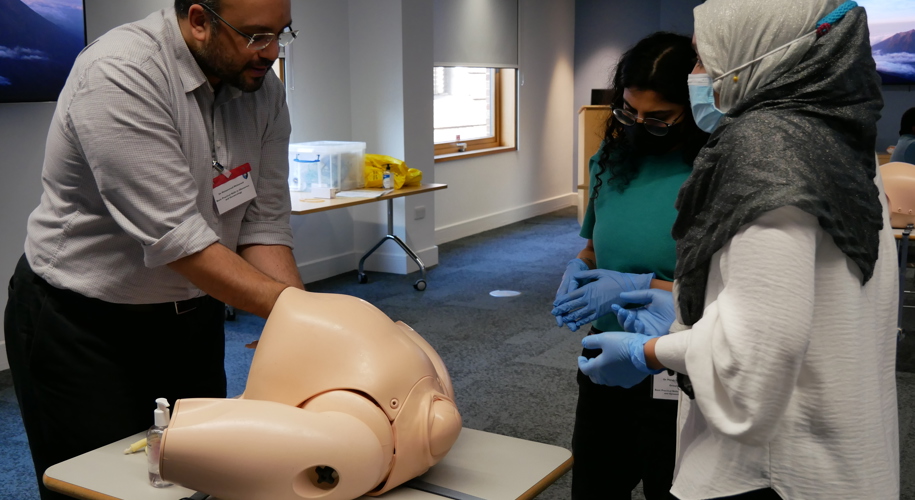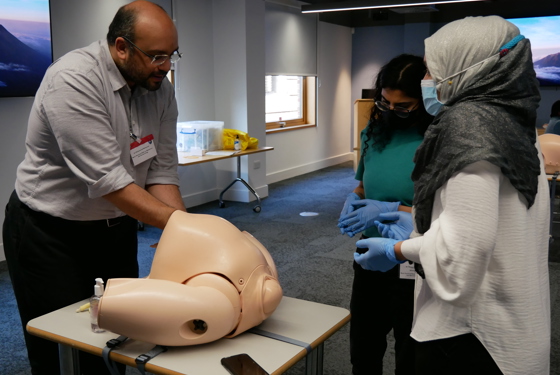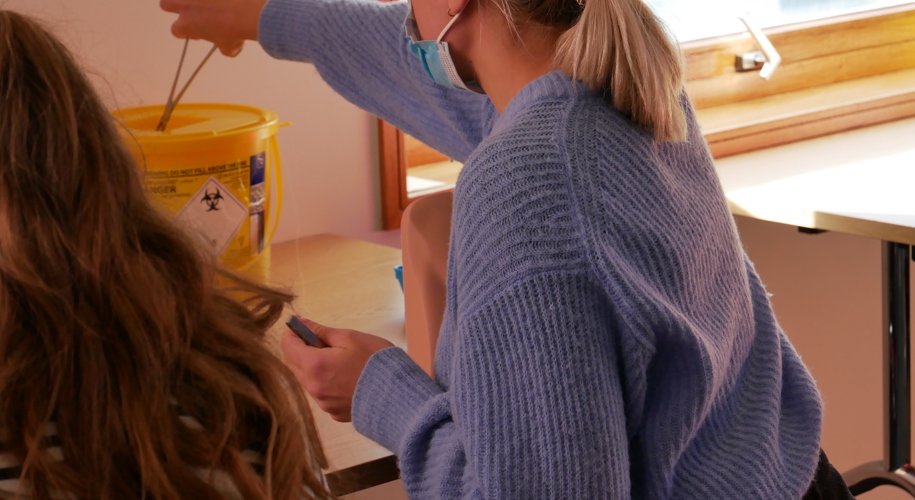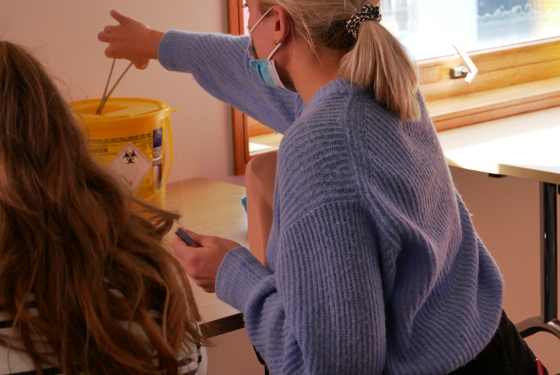This website contains a lot of information about a career in O&G:
- Read our O&G careers prospectus
- Read case studies from people who’ve chosen a career in O&G
- Find out why people choose a career in O&G
Your local trust will have a College Tutor in O&G who should be able to meet you personally. Your region will have a School of O&G, which may include a careers lead who’ll also be able to give you advice.
Careers information is also available on deanery websites, the NHS specialty training website and the General Medical Council (GMC) website.
The best ways to decide are to experience O&G personally, and to speak to others in the specialty.
To experience O&G yourself, you could arrange ‘taster’ experience in a local O&G department (usually for 1 week during foundation training). Your local Foundation Director should be able to help.
Talking to local trainees will also be helpful. Your region will have a School of O&G, which may include a careers lead who can provide advice.
If you’re undecided about specialty training, you could take a year out after foundation training and undertake a non-training post in O&G (e.g. Clinical Fellow). During this time, talk to colleagues in O&G. Your local trust will have a College Tutor in O&G who should be able to meet you personally.
To apply for an ST1 post in O&G, please visit the Oriel website, the portal for applications to medical, dental, public health and healthcare science training programmes. This is the only way to submit an application form for an ST1 post in O&G.
The Oriel website also includes lots of information about recruitment, including person specifications and an FAQ document that explains the process, key dates, interview timetables, competition ratios and more. We advise you to look at all of the information thoroughly before submitting your application.
The recruitment process starts in November each year, with a 2-week window in which you need to submit your application form. Interviews generally take place in January/February, with offers made from early March onwards for posts that will start in August/September.
our first priority should be to fulfil the requirements of your foundation training and develop an excellent foundation. This includes excellence in the generic skills of communication, team working, basic clinical competences and quality improvement measures.
Beyond this, you should look for opportunities that demonstrate your interest in and commitment to the specialty, such as:
- Undertake relevant audit projects (not necessarily in O&G, but with transferrable knowledge and skills)
- Undertake ‘taster’ activities in O&G
- Attend relevant clinical sessions outside your normal working requirements
- Develop tarnsferrable clinical skills
- Attend careers events, such as local careers fairs, RCOG careers events and other RCOG events aimed at junior doctors
- Submit applications for RCOG prizes and awards for foundation trainees
Also, familiarise yourself with the person specification for specialty training and use this as a guide to develop your capabilities in preparation for your specialty application.
No. Undertaking an O&G placement is not required as part of foundation training and you won’t be disadvantaged in the specialty recruitment process if you haven’t done such a placement. While a placement might help you to confirm your career choice, no previous postgraduate experience is required or expected, and your application and interview will be assessed according to foundation competences.
However, you’ll be expected to demonstrate your enthusiasm for and commitment to the specialty. For guidance on how to do this, please see the above question.
It's essential to complete basic and advanced life support training, as per the foundation programme. No other courses are mandatory.
No specific courses are required before commencing specialty training, and you can complete all mandatory courses as part of your postgraduate training. However, undertaking relevant courses during foundation training can be a way of demonstrating enthusiasm for and commitment to the specialty. Examples include Advanced Life Support in Obstetrics and the Basic Practical Skills course.
Sitting and/or passing the Part 1 MRCOG exam isn’t required for specialty application and won’t provide any direct advantage in the recruitment process. However, this can demonstrate your enthusiasm for and commitment to the specialty.
If you’re successfully appointed to specialty training in O&G, you’ll be required to pass the Part 1 MRCOG within the first 2 years of training. Some doctors find it beneficial to undertake this study early in their careers, e.g during foundation training. However, you must ensure this doesn’t detract from completion of foundation training and developing an excellent foundation portfolio.
If you’re considering sitting the Part 1 MRCOG during foundation training, please note that the exam has recently become more clinically focused, so lack of clinical experience in managing problems on the ward would be a disadvantage. The Part 1 MRCOG Committee couldn’t advise trainees to sit the exam during foundation years.
The Women’s Health Module outlines the competencies we expect a foundation doctor to achieve during an O&G placement. It’s not part of the GMC-approved foundation curriculum and is intended as a guide for self-directed learning. You can use supervised learning events (DOPS, mini-CEX and CbD) to record learning in the areas outlined in the module.
Completion of the module isn’t mandatory and won’t be used in the recruitment process for specialty training, although it can be used to demonstrate your enthusiasm for and commitment to O&G.
Your first prioirity is to be completely familiar with the person specification for specialty training. Use this as a guide to prepare for the interview, which will be mapped against the person specification. Other ways to prepare include:
- Talking to ST1s in O&G about their experience (although the interview will change from year to year)
- Attending careers events, such as local careers fairs, RCOG careers events and local interview preparation sessions (organised by your trust or region)
- Preparing a foundation portfolio that highlights your strengths and achievements and reflects on your experience (this will be helpful, but may not be a formal requirement)
Taking a year out won’t affect your subsequent application for specialty training, although it’s worth considering what additional skills and experience you can gain during this time to help demonstrate your enthusiasm for and commitment to O&G. Whatever you choose to do, it’s important to record your activities and reflect on how this has helped your professional development. Maintaining a portfolio could help you do this.
Remember that you’ll need to complete your specialty application by the deadline and will be required to attend your interview in person in the UK.
First, don’t be discouraged as many trainees enter specialty training on their second attempt. You should use the year to develop the generic skills listed in the person specification for specialty training, and to develop your confidence and ability to present yourself optimally to the interview panel.
You can also use the year to further demonstrate your enthusiasm for and commitment to the specialty. You can do this in a variety of ways, including audits, presentations, teaching, courses, sitting the Part 1 MRCOG exam, research and submitting entries for RCOG awards/competitions. You could also undertake a non-training post in O&G (e.g. Clinical Fellow) or in a related specialty, e.g. general surgery, urology, adult medicine, endocrinology, paediatrics or neonatology.
Whatever you choose to do, it’s important to record your activities and reflect on how this has helped your professional development. Maintaining a portfolio could help you do this, as could using the foundation documentation.
You also need to be aware of the eligibility criteria for entry to specialty training in O&G, which includes the requirement that you have 18 months or less experience in O&G (not including foundation placements) by the time of appointment.
Find out more
This section of the site also provides answers to FAQs for:
- School and college students
- Medical students
- Other groups (trainees in other specialties who wish to move to O&G; non-UK trainees; trainees with responsibilities as a carer)
Visit the main O&G careers page for more information.


Academic O&G
Find out how the College promotes and supports academic work within obstetrics and gynaecology


Specialty training in O&G
Overview of the specialty training programme in O&G, including assessment and certification of training
